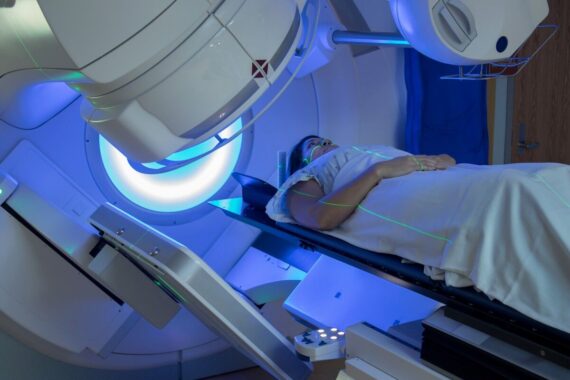NHS England said it is providing growing numbers of diagnostic tests, outpatient appointments and operations, which has led to further falls in the waiting list.
The latest figures show the backlog is now 7.4 million – 26,000 less than the previous month.
Data from February also shows the faster diagnostic cancer standard was met with 80.2% of people being diagnosed or having a cancer ruled out within 28 days of an urgent referral, ahead of the 75% target.
Yet only 62% of people started their first treatment within two months, well short of the 85% standard which has not been met since 2015, Cancer Research UK pointed out.
From July last year to the end of January, there were 3.1 million additional appointments across elective operations, outpatient appointments and diagnostic tests, NHS England said.
Overall figures on 15 key diagnostic tests showed more than 2.3 million were done in February – a 4.1% increase on the same month last year.
Data from 160-plus community diagnostic centres opened to improve access to tests for GPs showed they did 291,700 in February or 12.5% of the total.
No ICB met the operational waiting time standard of less than 1% of patients waiting more than six weeks for a test, figures show.
In the elective care reform plan, an ambition was set for the NHS to return to the standard of treating 92% of patients within 18 weeks by March 2029.
NHS England said progress was being made in the numbers waiting more than 18 weeks and in the longest waits of more than a year. In February 59.2% of patients were treated within 18 weeks.
Earlier this month, ICBs were reminded that advice and guidance (A&G) must not be used ‘in place of’ urgent cancer referrals.
Professor Sir Stephen Powis, NHS national medical director, said the figures were more signs of ‘genuine progress across a range of services’.
‘It is fantastic to see that a record proportion of people have received vital results from cancer checks within the four-week standard, despite more people continuing to come forward, helping to give people clarity with that all-important diagnosis so they can plan next steps in terms of treatment or the relief of the all clear.’
Health secretary Wes Streeting said: ‘Through this government’s Plan for Change, we are starting to see a real difference. Fixing our NHS is a long road and this is just the start – but we’re doing the work and delivering for patients.’
Michelle Mitchell, chief executive of Cancer Research UK, said although progress is being made to diagnose patients sooner, people still faced unacceptable delays to access vital cancer care in England.
‘Long waits are fixable – but only with bold political action. The National Cancer Plan for England is the government’s chance to make a lasting difference to the lives of people affected by cancer.’












